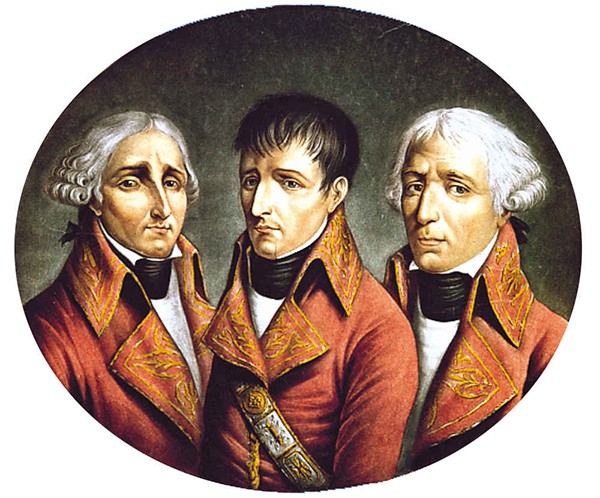At the precise moment when the text of the Constitution of An VIII became law, the three consuls, Bonaparte, Cambacérès and Lebrun, addressed a proclamation to the French people, which ended strongly thus: “Citizens, the Revolution is fixed to the principles that began it. It is ended/finished [finie, in French]”. The last word has been the source of much debate, some understanding it to mean that the Revolution was over, translating the words ‘finie’ as ‘ended’. However, when you look at this word in the Dictionnaire de l’Académie française for 1798, it gives the following definition: “When we say that a work is finished (fini) we mean that is perfect […]. The word is also an adjective meaning circumscribed, enclosed […]. It can also be used substantively, above all in the arts, to refer to works terminated with care.” [Presumably, this is why we say in English ‘fine’ to mean ‘very good’, Translator’s note] It is clear here that, according to the usage of the period, ‘fini’ is more likely to mean ‘finished’/’perfected’ than ‘ended’. So the expression refers not to turning one’s back on the Revolution but rather to recognising its boundaries or extent – in Latin too, finire means to set a limit -, “in the principles that began it”, namely, those of 1789. These principles had been perfected/accomplished or circumscribed. It is hard, then, to see why, other than for practical or more likely ideological a prioris – to “fly your colours” as François Furet wrote-, a great number of historians made Brumaire An VIII the end of the Revolution. To use the simplistic period breaks common these days, after the Constituante, the Législative, the Convention and the Directory, the Consulate and at least a part of the Empire constitute a fourth period of the Revolution, in that people continued to defend and to enact the principles “that had begun it”.
Napoleon did not turn his back on the Revolution. However, for him, the Revolution was not to be confused with the Convention, Robespierre and the Terror. Through the experience of the Directory, Napoleon attached himself to the moderate Revolution of 1789, that of “equality”, with as its corollary, the return of civil peace and order. For him, as he said one day, the last page of the “novel” that was the Revolution must one day be written. The role of the new government was to write “its own history”, in other words, to consolidate the advances made by the Revolution and to make them irreversible. It was therefore following in continuity with the moderate Revolution that it fulfilled this historical mission, at the end of ten years of struggle, hesitations and disorder. As is sometimes heard today, so it was for Napoleon: citizens could not enjoy equality and liberty without order.


